Ukraine fought alongside US in Iraq; never demanded minerals
As the two fight over a minerals deal, we review the little-remembered sacrifices that Ukraine made when fighting in the U.S.-led war in Iraq – sacrifices Ukraine never asked to be compensated for.
Editor’s Note:
This story shows how sick it is to demand compensation from a country that has been invaded.
We’re devoted to covering the Ukraine war from creative and unique angles every day. By introducing you to interesting characters, we can illustrate and illuminate a whole new way to look at the news.
Agree with our methods? Support us by upgrading to a paid subscription!
Ukraine came to the aid of the United States in a war when asked.
Ukrainian soldiers died in the U.S.-led war in Iraq.
But when it came to defending democratic values in Ukraine, the U.S. abandoned them at the most critical moment, turning the deaths of Ukrainians into a business transaction.
"They [the new Trump administration] are playing a very dangerous game," said Serhii Hrabskyi, a Ukrainian military man who served in Iraq.
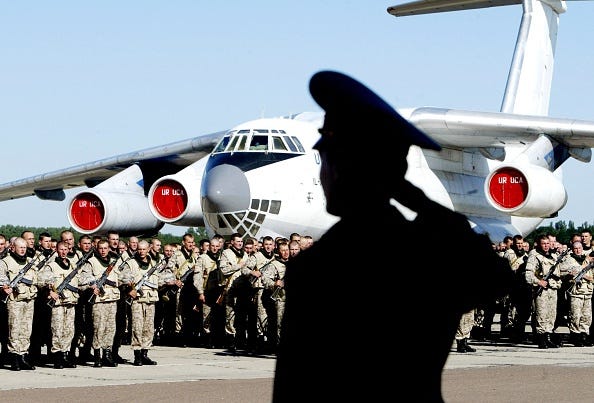
After the meltdown in the Oval Office, Donald Trump has not backed down from his rhetoric that Ukraine should compensate the United States for military aid approved under the Biden administration.
Trump has demanded that Kyiv immediately sign an agreement transferring rare earth minerals, and enter negotiations with Russia without any security guarantees from the United States. Any airing of Ukrainian concerns has been interpreted by Trump and VP Vance as ‘disrespectful’.
There has been a trend of the Trump administration taking decades-long partnerships as mere leverage for transactions. Friendships, often forged in blood, are now considered currency to auction off in a fire sale.
Ukraine supported the United States, sacrificing lives to aid its allies in the Middle East during the Global War on Terror. It demanded no economic compensation for this help.
However, when Kyiv needed assistance, the United States not only categorically refused to send troops to guarantee peace but also weakened Ukraine’s military capabilities while attempting to exploit its vulnerability to extract resources. This has undermined Washington's role as a global security guarantor.
The United States launched the invasion of Iraq in March 2003, accusing Saddam Hussein's dictatorial regime of possessing weapons of mass destruction.
As an ally, Ukraine sided with Washington. It was among the countries that responded to the U.S. call to "establish a democratic system in Iraq," despite the fact that the UN Security Council did not approve the invasion, and many later deemed it illegal.
When even Washington's close partners Germany and France refused to send their militaries to take part, more than 1,600 Ukrainian troops arrived in the country in August 2003. The newly formed brigade was part of the Center-South Multinational Division, which consisted of representatives from 20 countries. The Ukrainians were tasked with controlling the province of Wasit, located in eastern Iraq and bordering Iran.
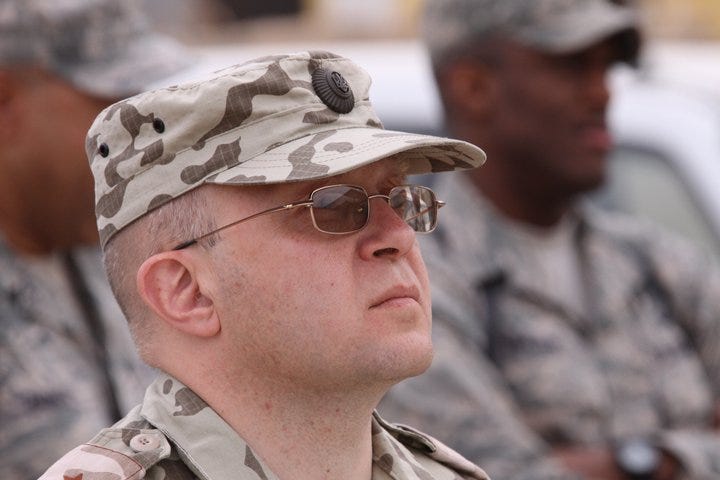
“There were only six seconds between the alert and impact. Six seconds—that’s all the time you have to react: throw something over yourself, jump out, hide, or do whatever you can,” recalls soldier Serhii Hrabskyi about his time in Iraq.
Although Hrabskyi was not directly involved in combat, he understands better than most what it means to risk your life in a foreign war. A retired colonel, he arrived in Iraq in 2009 as part of a NATO training mission, long after the main Ukrainian contingent had withdrawn. The mission aimed to train Iraq’s newly-established security forces, which had been created following democratic elections to maintain stability and combat insurgents.
Hrabskyi became a senior advisor at the National Operations Center within the Iraqi Prime Minister’s Office, working closely with American counterparts. They sat side by side in daily meetings, exchanging intelligence and coordinating operations. According to him, at the time, Ukrainians were regarded as equals among NATO forces. They were entrusted with training Iraqi sergeants.
Under constant threat, Hrabskyi experienced near-daily attacks. Even after 15 years, he sometimes still hears the "Incoming" alert in his mind — the warning that signaled the start of another shelling.
"During one of my Skype calls with my wife, I heard the shelling begin," he recalled. "I told her, ‘Darling, someone’s knocking on my door. I’ll go check.’ Then I dropped to the floor and crawled to the exit because the whistling was getting too close."
Since then, Serhii has celebrated multiple birthdays — his real one, and the one marking the day he miraculously survived.
But not all Ukrainians were so lucky. Some of them gave their lives in the Iraq War while fighting shoulder to shoulder with American troops.
No one knew what the Ukrainian military would be doing before it was sent to Iraq. Officially, they were called "peacekeepers" and were supposed to protect oil fields.
That illusion did not last long. Soon Ukrainian soldiers were taking part in combat operations. They patrolled densely populated areas, guarded key facilities, set up checkpoints, and searched for weapons and militants.
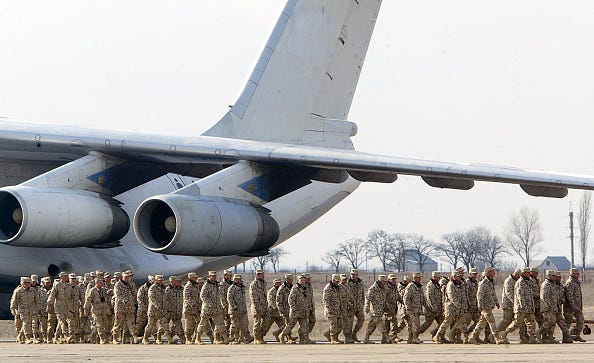
In April 2004, insurgents rebelling against U.S. occupation forces attacked Ukrainian soldiers in the town of Al-Qut, the administrative center of the province where they were serving. They hit a Ukrainian armored personnel carrier with a grenade launcher. As a result, Ukraine suffered its first combat casualty in Iraq.
It was 24-year-old machine gunner Ruslan Androshchuk.
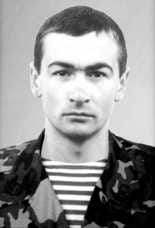
Firefights between Ukrainians and Iraqi militants lasted two days, forcing Kyiv's forces to leave the city. Later, the Ukrainians were ambushed and shot at point-blank range with rocket-propelled grenades and machine guns. Kyiv forces were constantly under attack by improvised explosive devices. In 2005, when an 18th Ukrainian soldier died in the Iraq war since 2003, Kyiv decided to withdraw its contingent.
The names of these soldiers were:
Serhii Suslov, Junior Sergeant
Oleksii Bondarenko, Captain
Yurii Koidan, Senior Sergeant
Ruslan Androshchuk, Private
Konstiantyn Mikhaliev, Private
Yaroslav Zlochevskyi, Private
Roman Henzerskyi, Senior Sergeant
Yurii Ivanov, Captain
Oleh Tykhonov, Lieutenant Colonel
Oleh Matizhev, Lieutenant Colonel
Yurii Zahrai, Captain
Serhii Andrushchenko, Captain
Valerii Brazhevskyi, Captain
Oleksandr Katsarskyi, Warrant Officer
Andrii Sitnykov, Senior Sergeant
Vira Petryk, Senior Sergeant
Volodymyr Sedoi, Senior Warrant Officer
Roman Serednytskyi, Colonel
After that, there were only observers and members of the training mission in the country, who did not take part in the fighting. Colonel Serhii Hrabskyi was one of them. He became the first Ukrainian to receive the NATO Meritorious Service Medal for his service in Iraq.
"Ukraine saw this [participation in the war in Iraq] as an opportunity to significantly improve relations with the United States of America, to join the coalition," said Ihor Semyvolos, director of the Center for Middle East Studies.
Today, Ukrainians have a different perception of their role in the Iraq war, which resulted in a large number of civilian casualties on the part of coalition forces.
In the early 2000s, Kyiv's relations with the White House were rather tense, so it sought to break the ice at all costs. On the eve of the invasion of Iraq, Ukrainians were accused of selling Kolchuga, a Ukrainian military electronic warfare system, to Iraq.
So to demonstrate its friendliness to Washington, Kyiv offered to contribute a contingent to the military operation. The United States was later unable to confirm that the Ukrainians had actually provided the Iraqis with the systems.
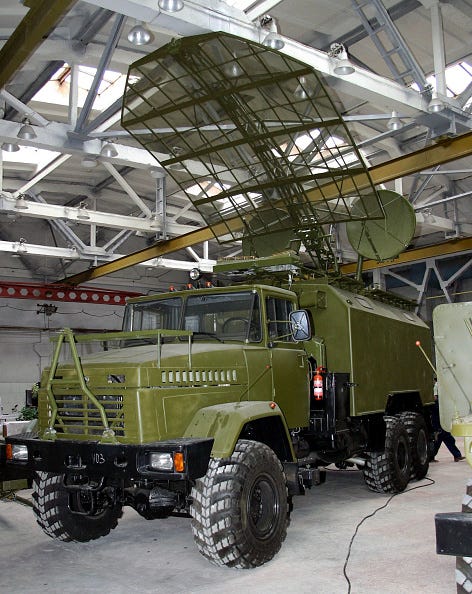
Relations between the United States and Ukraine did improve. The Ukrainian army gained invaluable combat experience fighting alongside other NATO countries.
According to Serhii Hrabskyi, who served in Iraq, this is what the Russian army later miscalculated when it launched the invasion in 2014, thinking that Kyiv had never had experience in warfare. In fact, the Iraq War formed the backbone of the new Ukrainian army.
Nevertheless, Washington never gave Ukraine the credit it deserved for siding with it and sacrificing the lives of its soldiers in a war that was not its own.
When Ukraine fought on the side of the United States, it did not ask for compensation for the help it had given voluntarily. Nor did any of the countries that were part of the international coalition. This war cost the United Kingdom more than $10 billion, for example.
But now the United States is not only forgetting the contribution of the Ukrainians. They are actually siding with Russia, which has always been a strategic enemy of Washington.
Despite the fact that Trump’s constant false claims, the actual figures of the assistance provided are many times less. The U.S. has provided Kyiv with approximately $64 billion of military, $47 billion of financial and $3 billion of humanitarian aid.
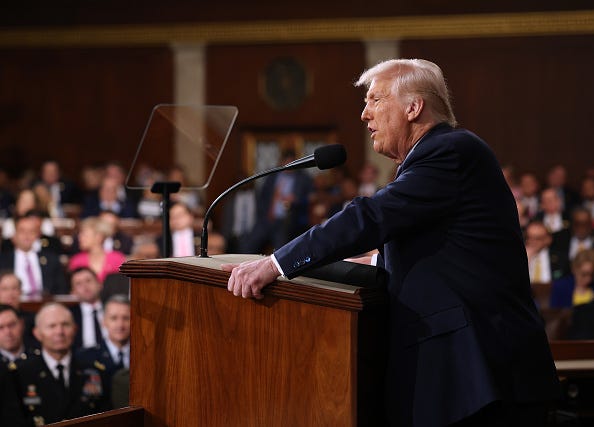
The original agreement on rare earth metals was akin to reparations to Ukraine for defending its sovereignty. It was even worse. Germany, which started World War I, had to pay less than Ukraine in its Versailles Treaty.
"Ukraine and the United States signed a number of agreements, memoranda of understanding, and many other things. The U.S. was the guarantor of our territorial integrity. They need to be reminded [of the Ukrainians' contribution], but the Trump administration doesn't pay attention to this," said Ihor Semyvolos, Center for Middle East Studies director.
Serhii, who worked closely with the U.S. military in Iraq and still keeps in touch with them, believes that “true Americans” remember Ukraine's contribution. But the current administration, now supported by millions of U.S. citizens, will doom itself to a new war if it continues to confuse the aggressor with the victim.
"If we now encourage the criminals to continue their hostilities... for the Americans it will be a tragedy that will be measured in tens and hundreds of thousands of lives of American soldiers, and it will not necessarily be on the fields of Ukraine," said Serhii Hrabskyi.
So now the United States must decide which side of history it is on: Will Washington continue its pragmatic and cynical attack on the vulnerable, or will it finally take its rightful place as a world leader and guarantor of security in the world?
With every passing day, the U.S. halt in military aid means that the situation on the ground is more dangerous. Your contributions help us get the body armor, medical gear, and supplies we need to stay safe.
Show your support by contributing to our tip jar - funds go towards keeping us safe and ensuring our work continues.
TIM MAK AND RYAN MCBETH ON THE FALTERING TRANS-ATLANTIC ALLIANCE:
NEWS OF THE DAY:
Good morning to readers; Kyiv remains in Ukrainian hands.
POLISH, GERMANS CONSIDER DEVELOPING NUKE CAPACITY, PROTECTION: Germany is planning to start talks on expanding the French and British nuclear deterrent, The Wall Street Journal reported. This breaks a long-standing taboo in German society, which, after World War II, refused to build its own nuclear weapons and instead relied on the American nuclear deterrent.
Despite newly-elected Chancellor Friedrich Merz stating that Germany does not need to develop its own nuclear arsenal, he has not ruled out the possibility entirely. This discussion is emerging against the backdrop of former U.S. President Donald Trump’s attempts to distance the United States from its security commitments in Europe.
At the same time, Polish PM Donald Tusk has also stated that Poland should increase the size of its army and even “explore opportunities related to nuclear weapons” in response to shifting U.S. geopolitical policies. Reports suggest that Poland has begun discussions about extending the French nuclear umbrella to other European countries.
RUSSIA PUSHES BACK UKRAINIAN FORCES IN KURSK: Since the United States halted military aid and intelligence sharing with Kyiv's forces, the Russian army, along with North Korean troops, has made significant advances in the Kursk region, The New York Times reported. With the reinforcement of N. Korean soldiers and the use of fiber-optic drones — more resistant to interference than radio-controlled drones — the Russians have managed to capture key Ukrainian positions.
U.S. HALTS SHARING SATELLITE IMAGES WITH KYIV: Washington has temporarily suspended Ukraine's access to American commercial satellite imagery, The Washington Post reported. This marks another major setback for Kyiv, which is already suffering from the cessation of intelligence sharing with the U.S. and the suspension of military aid.
Satellite images are crucial for Ukrainian forces to adjust their attacks, monitor Russian troop movements, and identify enemy positions and supply depots. Moreover, access to satellite imagery helps Kyiv with logistical planning, allowing it to map out supply routes and avoid mined or destroyed roads.
The Ukrainian Ambassador to the U.K. and former Commander-in-Chief of the Kyiv Army claimed that actions currently taken by the U.S. government against Ukraine are destroying the world order. According to him, the White House policy under U.S. President Trump has called into question "the unity of the entire Western world."
RUSSIA ALLEGEDLY "READY" FOR A CEASEFIRE: For the first time, Vladimir Putin has reportedly signaled Russia’s willingness to engage in peace talks, with this message allegedly conveyed to Donald Trump during negotiations in Saudi Arabia, Bloomberg reported. However, Russia wants to set its own conditions. In particular, Moscow is expected to insist on defining the parameters of a potential peacekeeping mission. Specifically, it wants to have a say in determining which countries would be allowed to deploy troops to Ukraine.
TRUMP MAY SEND TROOPS TO HUNGARY: The WH is considering withdrawing 35,000 American troops from Germany and sending them to Hungary, which has close ties with Russia, The Telegraph reported. This could further deteriorate relations between the United States and Europe. Trump is allegedly disappointed that Europe, which he has repeatedly called on to strengthen its defense capabilities, is now “pushing for war.”
ZELENSKYY’S PUBLIC SUPPORT ON RISE: The trust rating of Volodymyr Zelenskyy has risen to 67% amid the scandal in the Oval Office and the overall deterioration of relations with the U.S., Kyiv International Institute of Sociology reported. This once again refutes Donald Trump's claim that Zelenskyy's rating is only 4%. Since the beginning of the full-scale invasion, Zelenskyy's rating had been steadily decreasing, but now Ukrainian society has started to unite around the president. As stated by the Institute, Ukrainians perceived Trump's attacks not as personal animosity towards Zelenskyy, but as general hostility towards all Ukrainians.
CAT OF CONFLICT
Today’s cat of conflict is Mariana’s cat Simba after her father brought him to the bath. Simba absolutely hates any ‘beauty routine,’ so usually he starts to ignore her family for around an hour to demonstrate his irritation.
Stay safe out there.
Best,
Mariana












There have been many reasons to be ashamed of being an American through my lifetime. But what Trump is doing to Ukraine is not only murderous, but cheap and tawdry and filthy. As I have grown to ‘know’ Ukrainians through this war and reading about them, they seem like a stark contrast to what Americans currently seem to be through the actions of Trump and, by having elected him. My shame knows no bounds. I am only slightly reassured that they have many friends and admirers who truly know them in Europe. But up against Putin, directly, with such a betrayal by the United States . . . words fail me.
I was an American soldier in 2003 and met with Ukrainian soldiers in Al QUT